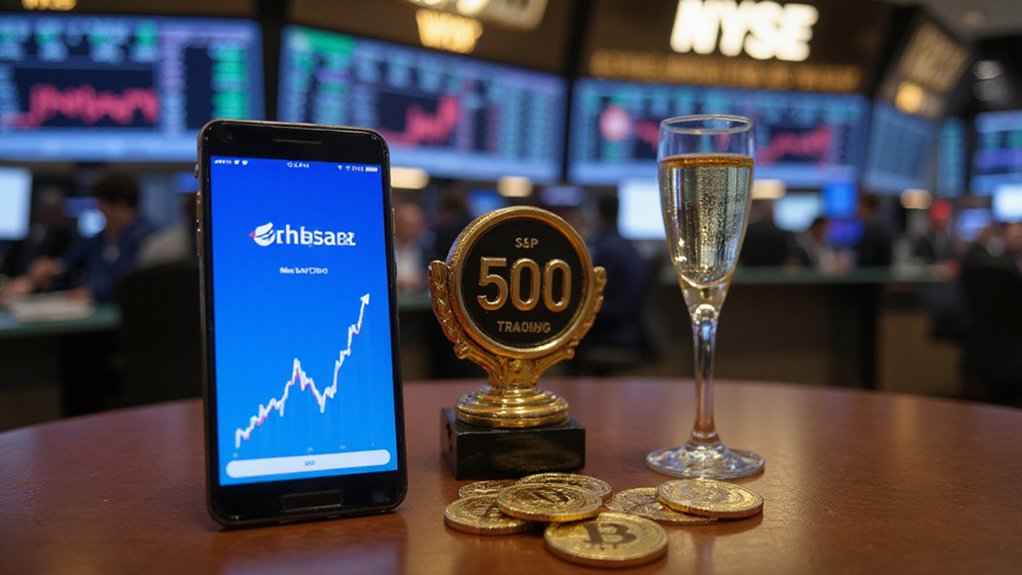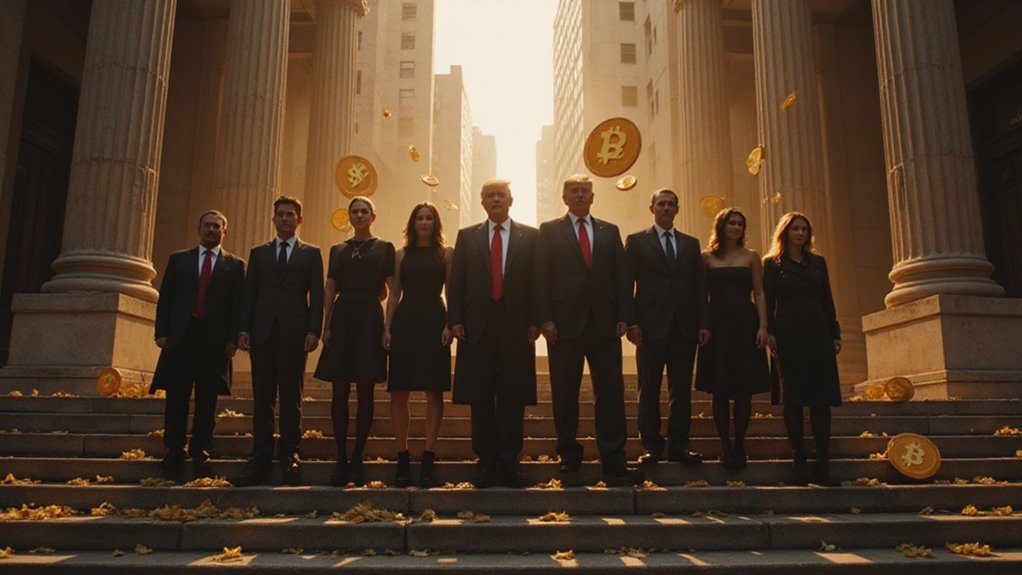While skeptics spent years dismissing Bitcoin as digital fool’s gold, institutional money has quietly transformed the cryptocurrency from speculative plaything into a $118,000-per-coin juggernaut that now commands more Wall Street attention than most blue-chip stocks.
The numbers tell a story that even the most hardened traditionalists cannot ignore. Bitcoin ETFs absorbed $85 billion in combined inflows throughout 2024 and 2025, with BlackRock’s iShares Bitcoin Trust alone controlling $80 billion—a figure that would make it larger than most sovereign wealth funds. The irony is palpable: an asset once derided by Jamie Dimon now attracts more institutional capital than many established sectors.
Recent weeks have witnessed particularly dramatic flows, with U.S. spot Bitcoin ETFs recording over $510 million in net inflows and a single-day record of $1.17 billion in July 2025. These aren’t retail speculators throwing lunch money at crypto—Fortune 500 companies have committed $3.5 billion to Bitcoin treasury strategies, while hedge funds and asset managers treat digital assets as portfolio necessities rather than exotic experiments. The rally’s ferocity becomes apparent when considering that short liquidations exceeded $950 million as Bitcoin breached previous all-time highs.
Institutional money has transformed Bitcoin from speculative curiosity into a $118,000 portfolio necessity commanding unprecedented Wall Street respect.
The supply-demand arithmetic borders on the absurd. ETF demand could theoretically absorb an entire year’s worth of new Bitcoin supply in roughly five weeks, while the April 2024 halving reduced daily miner issuance to just 450 BTC. When institutional FOMO meets programmatic scarcity, price discovery takes on characteristics that would make traditional equity analysts reach for stronger coffee. Corporate holders like MicroStrategy demonstrate remarkable diamond hands behavior, having not sold any Bitcoin since 2020 despite massive price appreciation.
Trump administration regulatory support has provided additional tailwinds, creating an environment where crypto-friendly policies bolster institutional confidence. The transformation reflects broader macroeconomic anxieties—high global debt, inflation concerns, and geopolitical uncertainty have elevated Bitcoin’s appeal as “digital gold” among portfolio managers seeking alternatives to sovereign debt. Established platforms like Luno Exchange have facilitated this institutional adoption by providing secure crypto trading infrastructure across 40+ countries with multi-layered security protocols.
Perhaps most telling is Bitcoin’s evolving volatility profile. Despite doubling from $58,000 to over $118,000, the cryptocurrency has exhibited lower volatility than historical peaks, suggesting institutional participation has brought stabilizing forces that retail-dominated markets lacked.
Wall Street’s embrace of Bitcoin represents more than asset allocation—it signals recognition that digital scarcity commands premium valuations in an era of monetary abundance.









